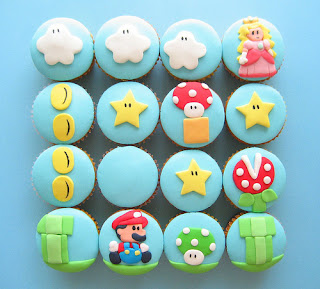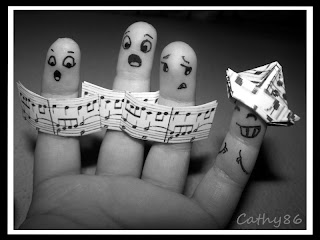I used to be a punctual person. Until I moved to India. When there was a wedding I'd force my sister to rush getting ready and scramble into the car. Traffic in Hyderabad was never light, except for the odd hours of the night. It would take at least an hour to get to the wedding hall with traffic, fifteen minutes without. After arriving to the venue, we'd find that we are extremely early, despite being half and hour to 45 minutes later than the time given on the invitation.
The stage is beautifully decorated with flowers hanging on string to create a backdrop, as well as large flower arrangements near the area the bride is to sit. It's either a velvet chair or couch, or the traditional way is to sit on the floor on a velvet cloth with gold thread in an uncomfortable pose. In front of the stage are chairs arranged facing the stage. Usually the first few rows are fancy chairs or benches that closer members of the bride and grooms family sit. Behind them are plastic chairs everybody else sits on. This I have seen at the most extravagant weddings as well. Now that I think of it, it might be due to lack of storage space, or low maintenance, as Indian weddings are pretty big. I've been to a wedding where a couple thousand people have been invited! Oh, and men and women are seated in separate areas, as per religious requirements.
In India, the stages look something along the lines of this:
In America, stages look more like this:
After what seems hours of waiting or so, the hall fills up with many, many people. Everyone is invited to weddings in India. Sometimes you never even met the bride or the family, you just are a coworker or friend of someone related to the wedding party. The mailman, the tailor, the neighbors, drivers, maids. Teachers, classmates, co-workers. Parents' friends, co-workers. The jeweler. The bride and grooms friends' cousins, siblings families and friends. The list is pretty exhausting.
If we're lucky dinner will be served by 10:30 PM. There is a separate area where dinner is served. Usually, they have rounds for eating, as not everyone can fit into the hall. There are tons of people, after all. You're best bet, and in my case, my only chance of having a shot at dinner is at the first sitting. During the second sitting, drinking glasses and napkins are not provided. The plates are rewashed and wet, sometimes dirty. The serving spoons have oil on them, as Indians eat with their hands. And the food is not brand new. Meaning that they will take the left overs from the first sitting and serve them in the next rounds. Which is OK, I mean don't waste food. But I'd like clean serving spoons.
The stage is beautifully decorated with flowers hanging on string to create a backdrop, as well as large flower arrangements near the area the bride is to sit. It's either a velvet chair or couch, or the traditional way is to sit on the floor on a velvet cloth with gold thread in an uncomfortable pose. In front of the stage are chairs arranged facing the stage. Usually the first few rows are fancy chairs or benches that closer members of the bride and grooms family sit. Behind them are plastic chairs everybody else sits on. This I have seen at the most extravagant weddings as well. Now that I think of it, it might be due to lack of storage space, or low maintenance, as Indian weddings are pretty big. I've been to a wedding where a couple thousand people have been invited! Oh, and men and women are seated in separate areas, as per religious requirements.
In India, the stages look something along the lines of this:
This is the more traditional way of sitting. The bride is supposed to be "shy" and look down, not speak. Meh. WHO CARES? A lot of older people do. It's the happiest day of your life, but you can't look it! Culture is weird.
In America, stages look more like this:
If we're lucky dinner will be served by 10:30 PM. There is a separate area where dinner is served. Usually, they have rounds for eating, as not everyone can fit into the hall. There are tons of people, after all. You're best bet, and in my case, my only chance of having a shot at dinner is at the first sitting. During the second sitting, drinking glasses and napkins are not provided. The plates are rewashed and wet, sometimes dirty. The serving spoons have oil on them, as Indians eat with their hands. And the food is not brand new. Meaning that they will take the left overs from the first sitting and serve them in the next rounds. Which is OK, I mean don't waste food. But I'd like clean serving spoons.
Because of the advantages of the first round, there is a mad dash when dinner is served. I probably was unlucky one or two times. I sit near the entrance to the dining hall, I walk fast, but don't run. I am a lady, after all. I know it does seem rather barbaric, but once you sit in the second or third round, you do not want to make that mistake again. Another reason for the rush is that Indian weddings are so late! They start as late as 10 pm, sometimes the bride doesn't show up until 10:30. It's kind of ridiculous if you ask me. I learned to eat a light meal or snack before the wedding.
 The food usually does not disappoint. Because I am a girly girl, I love it when they serve naan - an Indian flat bread - in the shape of a HEART. So romantic. Usually there is soup with meat in it to start with along with shrimp, lamb kabobs, chicken kabobs, fish. At a Muslim wedding there will definitely be a meat overload. This is served with different types of bread, the naan, as I've mentioned as well as some more oily or buttery breads. Following this huge amount of appetizers come the star of the meal, the biryani (rice) along with the accompanying gravies and yogurt. Followed by dessert which is Indian or ice cream served on cake with dried fruit and nuts.
The food usually does not disappoint. Because I am a girly girl, I love it when they serve naan - an Indian flat bread - in the shape of a HEART. So romantic. Usually there is soup with meat in it to start with along with shrimp, lamb kabobs, chicken kabobs, fish. At a Muslim wedding there will definitely be a meat overload. This is served with different types of bread, the naan, as I've mentioned as well as some more oily or buttery breads. Following this huge amount of appetizers come the star of the meal, the biryani (rice) along with the accompanying gravies and yogurt. Followed by dessert which is Indian or ice cream served on cake with dried fruit and nuts.This is dessert served in a clay pot. It's like full fat ice cream. So delicious. I put so many pictures of food, the best part!
Here, Muslim brides wear something called a Khada Dupatta. It's pretty much worn specifically in the region/city of India I am from. It's basically wearing a long top and pants and then being wrapped up in 6 meters of fabric. I used to hate it but now I love it. Even though I find it difficult to walk in. Only royalty used to wear these dresses, and I like to think of myself as such. Seriously, though, with jewelry, and if you wear it right, it looks grand. The first photos is a really simple, non-bridal one. The second is a bridal one. But the brides here wear heavier ones this is also pretty simple in comparison and I can't find a heavier one online and I don't want to post photos of my friends up here for religious reasons as they aren't covered up properly.
The bride also has henna on her hands and feet. Usually up to the elbows and a mid-calf. It costs about 100-200 dollars when you convert the currency. Which is nothing! In America, I got a quote for $1000. But I got lucky and found a super skilled Henna Artist who did it for much less.
After or during dinner the bride will her her photo shoot with the groom. And since it's so late, the guests will get ready to go. There is no dancing at the Muslim weddings. The dancing is done on the days leading up to the wedding. Sometimes there is entertainment. But I don't find it entertaining. Mostly it's old guys singing old school songs. haha. In America, there are dances, speeches, slideshows, entertainment, etc. But I'm mostly discussing how it's done "back home".
Anyways, when it's finally time for the bride and groom to leave, the bride and her parents and family cry because she is leaving the nest. So emotional. Waah waah waah.
I tried to cry. But I didn't. My parents were like, "Peace out!" haha. Good thing, or else my makeup would have been all over the place. It was kind of like this. "Bye, girl, see you tomorrow!"
























































